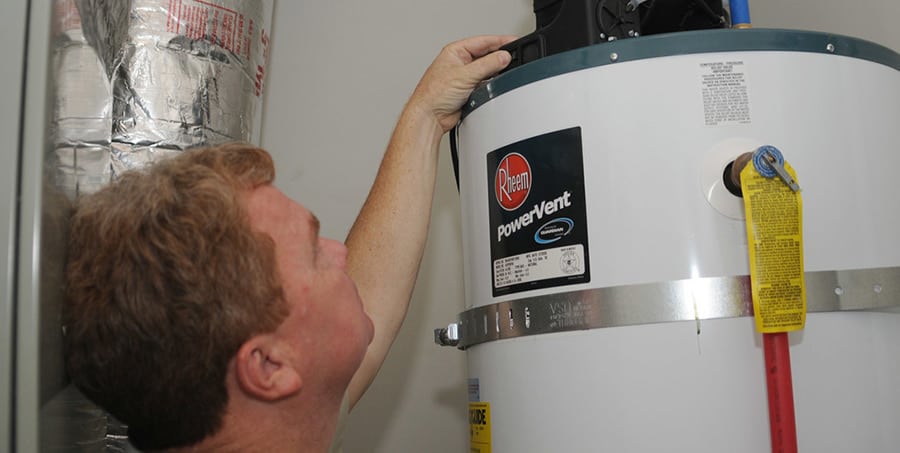Ways to Address the Most Common Heater Urgent Issues
Ways to Address the Most Common Heater Urgent Issues
Blog Article
What are your insights and beliefs on Warning Signs You Need Water Heater Repairs?

A hot water heater is just one of one of the most crucial standard appliances that can be discovered in a home. With hot water heater, you do not need to experience the anxiety of home heating water manually every time there is a need to wash, do the laundry, or the meals. There is constantly a possibility that your water heating unit would certainly act up as with most mechanical gadgets.
It is important to note any kind of little breakdown and tackle it rapidly before points leave hand. The majority of times, your water heater begins to malfunction when there is an accumulation of debris as a result of constant usage. As a precaution, regular flushing of your water heater is suggested to prevent sediment buildup and also stop functional failing.
Typical water heater emergencies and also how to manage them
Leaky water heater storage tank.
In this scenario, you need to turn off your water heater, permit it to cool down, and carefully look for the source of the issue. At times, all you require to do is to tighten up a couple of screws or pipe connections in cases of small leaks. If this does not work and also the leakage continues, you may require to use the services of a specialist for a proper substitute.
Rising and fall water temperature level.
Your water heating system can start creating water of different temperatures usually ice cool or scalding hot. There may be a demand to replace either the heating or the thermostat system of your water heating system.
Too little hot water
Taking care of a not enough supply of hot water can be aggravating. It may be that the hot water heater can't sustain the warm water need for your apartment. To manage this trouble, you can attempt to adjust your heating unit's temperature dial as well as wait for a few minutes. You can ask for the assistance of an expert plumber if the issue continues. You might upgrade your water heater to one with a bigger capability.
Blemished or smelly water
When this takes place, you need to recognize if the issue is from the container or the water source. If there is no funny odor when you run cold water, then you are specific that it is your hot water heater that is faulty. The smelly water can be triggered by corrosion or the buildup of bacteria or sediments in the water heater tank. When you discover this, you can try flushing out your container or replacing the anode if the problem continues. The feature of the anode is to clean bacteria from your container. Given that the anode rod replacement calls for a detailed understanding of your water heating unit, you will certainly require the assistance of an expert.
Final thought
Some home owners ignore little warning as well as minor faults in their water heater unit. This just leads to further damage and also a feasible complete break down of your home appliance. You must manage your water heater faults as soon as they come near prevent even more costs as well as unneeded emergency difficulties.
With water heating systems, you do not require to go via the stress and anxiety of home heating water by hand every time there is a requirement to take a bath, do the washing, or the dishes. Your water heating unit could start producing water of various temperatures typically ice scalding or cool warm. It might be that the water heating unit can't sustain the hot water need for your apartment or condo. If there is no amusing odor when you run chilly water, after that you are certain that it is your water heating system that is malfunctioning. The stinky water can be triggered by corrosion or the build-up of microorganisms or sediments in the water heater storage tank.
Water Heater Burst: Why This Happens And What To Do Next
Water Heater Explosion Warning Signs
Since storage water heaters are made of metal and store large volumes of heated water, they carry an increased risk of leaking or even exploding as they begin to rust at the fittings and seams over time. If the thermostat controlling the water temperature within the tank is faulty, or if mineral buildup inside the water heater prevents the thermostat from sensing the water’s temperature correctly, the water could become overheated. This will expand its volume within the tank, causing it to press at the tank’s fittings and seams. If these fittings and seams are rusted or corroded, the pressure could result in a leak or even an explosion.
Here are some risk factors and warning signs of an increased risk of water heater leak or explosion:
Your water heater is more than 10 years old. Your water heater makes clanking, banging or rumbling noises as it heats up, indicating that sediment has built up and hardened inside the tank. There is visible rust on the outside of the water heater, especially located at the pipe fittings or the seams that run down the tank. There is rusty water coming from your water heater, indicating that there may be rust building up inside. Your water heater is leaking, which could indicate either a crack somewhere in the tank or a malfunctioning temperature-and-pressure (T&P) relief valve. What To Do When Water Heater Leaks
If you find water dripping or seeping out of your water heater, or pooling around it, it means your water heater is leaking. If you find a leak, it may be best to call a plumbing professional to diagnose the problem and determine how best to handle it. If you choose to tackle it on your own, there are a few things you can do.
TURN OFF THE POWER
Next, shut off the power to the hot water tank at your home’s electrical breaker box. If you don’t shut off the power, the heating elements within the tank could continue to stay hot, which could pose a fire risk.
If you have a gas-powered water heater, you’ll also need to shut off the gas line leading into the tank.
FIND THE LEAK
Now it’s time to determine where the leak is coming from. Likely locations are the T&P valve, the drain valve or one of the pipes or fittings that feed into the top of the tank. If you see any rust or corrosion on the outside of your water heater’s tank, pipes or fittings, these could also be the source of the leak.
REPAIR THE LEAK
Once you determine the source of your water heater leak, you’ll have a better idea of what steps you need to take to fix the problem. It may be a simple fix—such as using a wrench to tighten fittings or replacing the T&P valve—but it may be something more complicated. You may even need to drain the tank, remove the water heater and install a new one.
https://www.abchomeandcommercial.com/blog/water-heater-burst/

We hope you enjoyed our topic on Warning Signs You Need Water Heater Repairs. Many thanks for taking time to browse our article post. Appreciated our content? Please share it. Let another person check it out. We love reading our article about The Importance of Water Heater Maintenance.
Best choice? Dial. Report this page